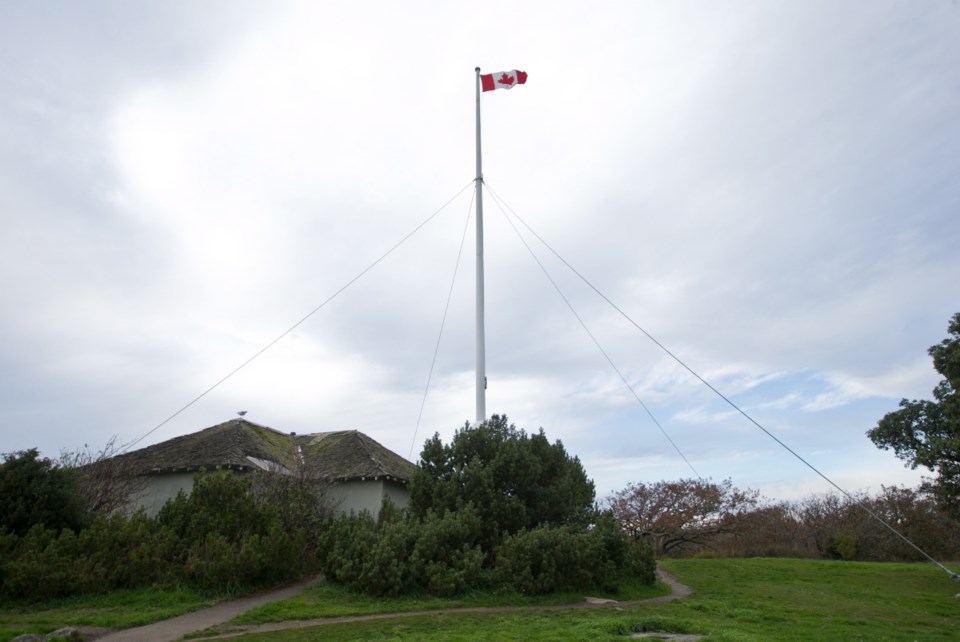We have again come to a crossroads with respect to a decision affecting the future of Beacon Hill Park (“Victoria neglecting Checkers Pavilion on Beacon Hill: Isitt,” Oct. 31).
The Checkers Pavilion, a potentially beautiful location for a deck and coffee shop, with an opportunity for thousands to enjoy a spectacular view, will have no future beyond demolition by neglect. Why? Because Coun. Ben Isitt has stated that he has “absolutely no interest” in exploring commercial activities in the park.
His intent to bring attention to the state of this historic building is admirable, but the elephant in the room is that no one wants to talk about any commercial venture or non-profit enterprise in Beacon Hill Park.
Yes, I am aware of the Beacon Hill Trust and its decree in 1882, more than 130 years ago, which states that “the city was to maintain and preserve the [park] for use, recreation and enjoyment of the public.” It did not dictate that there should be absolutely no commercial activity conducted in the park. This was ruled by the provincial court after the trust’s establishment.
Why can we not consider a challenge to the court ruling, that would not necessarily contravene the intentions of the 1882 trust?
The Checkers Pavilion is one example of the neglect of Beacon Hill Park over the past several decades. This follows other questionable decisions, such as the much-contested traffic limits imposed several years ago, or challenges to park use for community events such as the Terry Fox Run (or even the placement of the statue of Fox at Mile Zero).
These limits are hurting the soul of our city and contravene the initial intent of the park, clearly outlined in the 1882 trust.
When I have the occasion to run through the park, I often notice that beyond the petting zoo, there is only a handful of other visitors. Is that what one would expect to see in a city’s crown jewel? One only has to look at Vancouver’s Stanley Park, a world-class park that allows limited commercial activity. I do not believe these activities detract from the enjoyment of the park.
The issue comes down to a small, core group of self-appointed zealots who interpret the trust as an excuse to limit activity in Beacon Hill Park, even if that activity benefits thousands of Victoria residents. There seems to be no political will at city hall to even consider a challenge to the interpretation of the trust.
Most of these proposed activities are not-for-profit and present no significant environmental impact on the park.
I have run three major marathons (New York, Chicago, Berlin), all of which finish in iconic city green spaces (i.e. Central Park, Grant Park, the Reichstag grounds), with more than 50,000 runners and more than 100,000 visitors (including spectators and families) per event. I am astounded that Beacon Hill Park cannot be used for the enjoyment of a few thousand people a few times per year.
The inability of the Friends of Beacon Hill to have a bigger-picture view has partially contributed to the decline of our local running events, namely the Times Colonist 10k and the GoodLife Fitness Marathon.
Typically, in a race, after crossing the finish line and exiting the runners’ area, participants reunite with family and friends and take time in a public space to celebrate their accomplishment. This might include food vendors, a band, a beer tent and kids’ events. This joyous community atmosphere is a draw to these races and is what typically attracts tourists to participate.
Given that the benefit of these races to the City of Victoria is measured in many millions of dollars, we could argue that significant revenue is lost as race enrolment declines, possibly attributable to the lack of a gathering area such as Beacon Hill Park. Registration has been on a steep downward slope for both major Victoria running events since 2010.
It is time to revisit the use of Beacon Hill Park. It is my conviction that the original trustees never intended the park’s use to be so restricted that even temporary, one-day commercial activity or not-for-profit events would be forbidden.
Let the majority of the people of Victoria steward the future of the park, not a small interest group.
Paul Kachan lives in Victoria.



